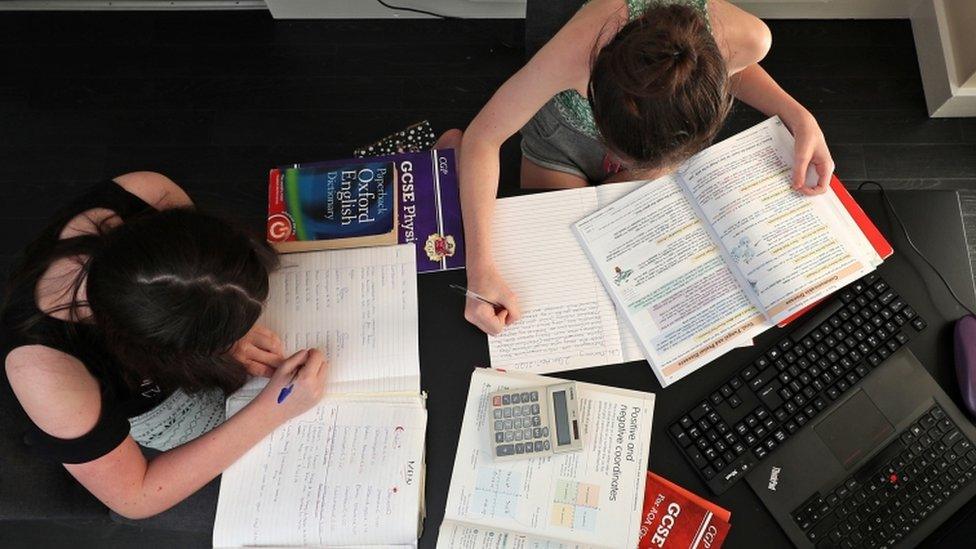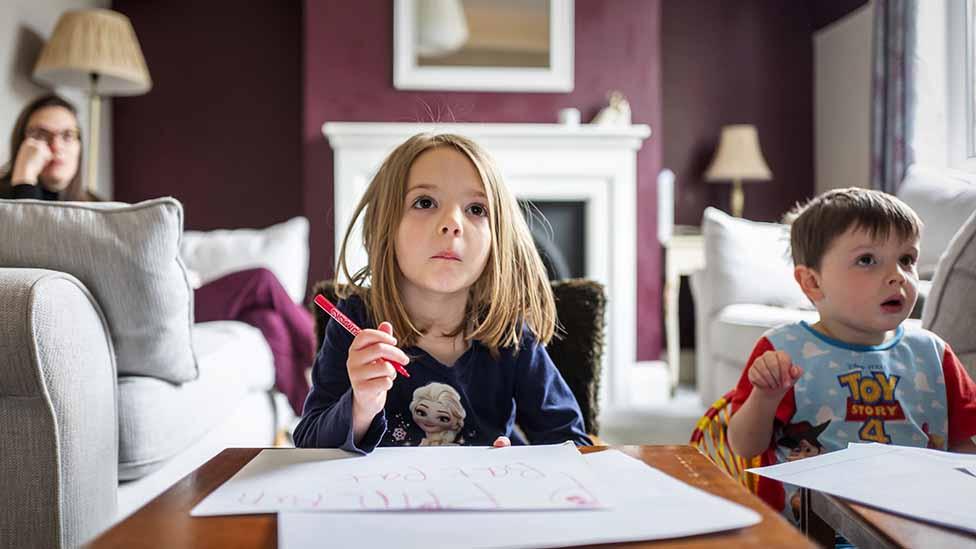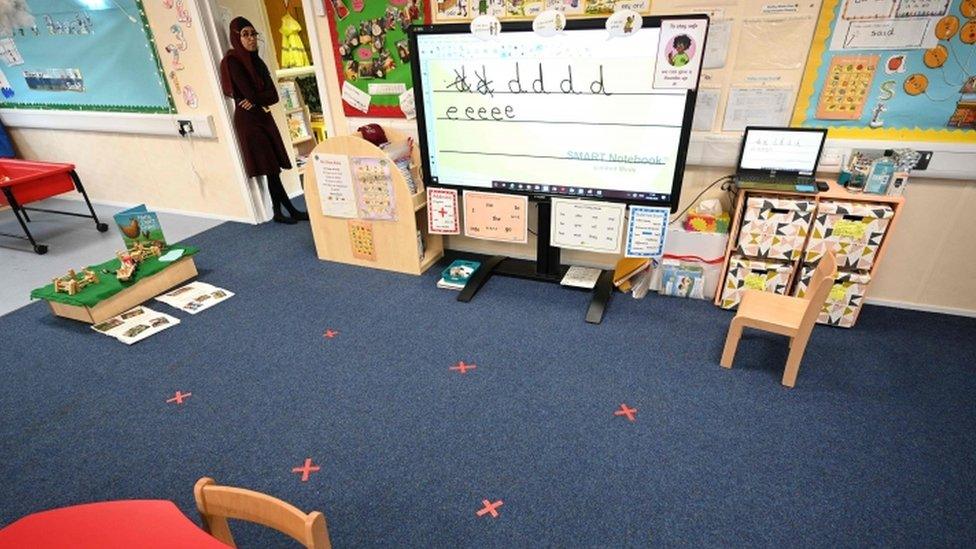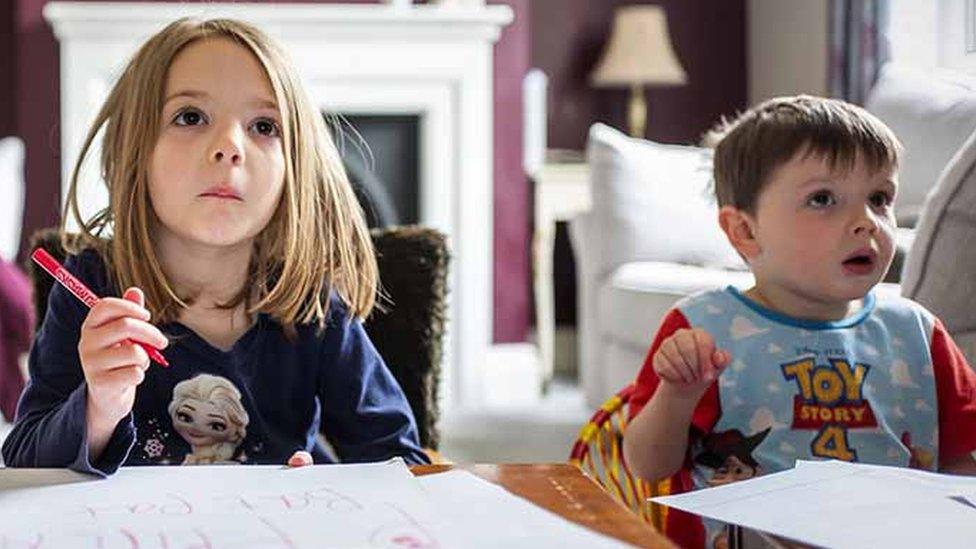Coronavirus: Homeschooling 'stressful and challenging' for most parents
- Published

A majority of parents found homeschooling "stressful and challenging" during the pandemic.
That is the suggestion from research by the Unesco Education Centre at Ulster University (UU).
Parents of children with Special Educational Needs (SEN) were most likely to experience difficulties in home-schooling.
The report on "Experiences of supporting children's home learning during Covid-19" is just published.
Its findings are based on detailed responses from more than 4,600 parents of pupils attending primary, post-primary and special schools across Northern Ireland.
Schools closed to the vast majority of pupils on 23 March.
As a result, many pupils were taught remotely until the end of the 2020-21 school year in June.
'Unrealistic expectations'
Parents of primary school pupils said they were most confident in providing some kind of physical activity for their children when they were not at school, but least confident in teaching subjects like art, music and drama.
"While many parents spoke positively about learning through apps and online activities, others described difficulties in navigating so many online resources," the report said.
"Often, there were insufficient devices in the home, particularly if the household had more than one child and/or parents needed a laptop to complete their own work."
Many parents working from home and trying to teach primary school children reported "the pressure of unrealistic expectations".
The report said that came "both from their managers in terms of what is possible to achieve whilst home-schooling and from schools in terms of how much work should be completed by children".
A majority also said that keeping their children's attention had been difficult.
Time at home
A number also reported that they had no printer at home so could not use some of the work their school had sent.
Many also expressed concerns about their children's social isolation, though some said they had enjoyed spending more time with them.
Parents of post-primary pupils were much more confident in helping their children with subjects like English than Science, Modern Languages or Technology.

There were some particular challenges for key workers during the coronavirus lockdown
Those who were key workers expressed particular challenges including leaving children who were old enough at home unsupervised.
"Many parents commented that they lacked the skills to effectively teach their children," the report said.
"Expectations for learning also differed between schools.
"Some parents complained that schools expected too much work to be completed while, for others, their children's school appeared less engaged after an initial period of support.
"In all instances, parents of post-primary children with SEN reported greater difficulties than parents of children with no SEN."
'Emergency remote education'
Parents of children entitled to free school meals were more likely to have no or poor internet access compared to other parents.
Some, though, said they had found more time with their children rewarding.
The majority of parents of pupils who attended a special school reported problems in managing their children's attention and behaviour.
"Schooling across Northern Ireland in recent months cannot truly be characterised as online learning and teaching, rather it has been a reactive form of emergency remote education," the report concluded.

Most pupils in Northern Ireland have not been in the classroom since March
However, the researchers said a number of lessons could be learned for the new school year, including tackling the "digital divide", more online skills training for teachers and re-opening special schools as a priority.
The Unesco centre's findings were based on detailed responses from 2,509 parents of primary school pupils, 1,905 parents of post-primary pupils and 198 parents whose children attend a special school.
The vast majority of parents who responded to the research survey were women.
The UU findings echo those of separate research carried out by Stranmillis University College.
- Published20 April 2020
